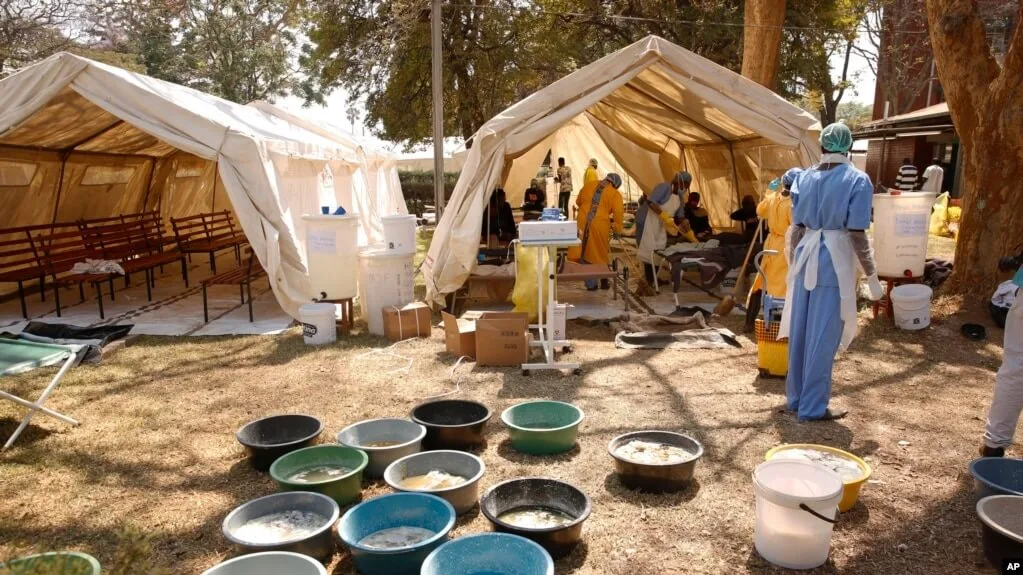 |
| Harare declares emergency as cholera outbreak ravages the city, prompting urgent health measures. |
In a pressing health crisis, Zimbabwe has declared a state of emergency in its capital, Harare, due to a devastating cholera outbreak that has already claimed numerous lives nationwide. Harare's Mayor, Ian Makone, confirmed this critical situation on Friday.
Harare, home to approximately 1.5 million residents, is currently grappling with this disease outbreak, impacting all provinces of the southern African country. "We have declared a state of emergency because the situation is now very bad," Mayor Makone stated to AFP, emphasizing the rapid spread of the disease throughout the city.
Zimbabwe has reported over 7,000 suspected cholera cases and nearly 150 deaths, including 51 confirmed via laboratory tests, since the outbreak's initial report in February. Harare has witnessed at least 12 fatalities.
Cholera, a disease caused by bacteria often transmitted through contaminated food or water, is a recurrent issue in Zimbabwean urban areas. The country's erratic water supply, inadequate sanitation facilities, and deteriorating infrastructure due to years of neglect have exacerbated these outbreaks.
Mayor Makone highlighted a concerning practice contributing to the crisis: "People have dug wells close to pit latrines, especially in mushrooming settlements and other suburbs which lack running water. This means their drinking water is contaminated."
This outbreak draws alarming parallels to the 2008 cholera epidemic in Zimbabwe, which resulted in at least 4,000 deaths and over 100,000 illnesses. The 2008 crisis coincided with Zimbabwe's severe economic downturn, marked by widespread hospital closures, medicine shortages, and the mass exodus of health workers.
In response to the current outbreak, local authorities, the health ministry, and various aid groups are collaborating to intensify water supply in affected regions and implement awareness campaigns.
The United Nations earlier this year reported a global resurgence of cholera since 2021, following a decade of gradual decline. This resurgence highlights the ongoing challenges in combating such infectious diseases globally.




 Founded on April 9, 2010, Diario Salto Al Día is a Uruguayan news outlet dedicated to national and international news coverage.
Founded on April 9, 2010, Diario Salto Al Día is a Uruguayan news outlet dedicated to national and international news coverage.
No comments
Post a Comment